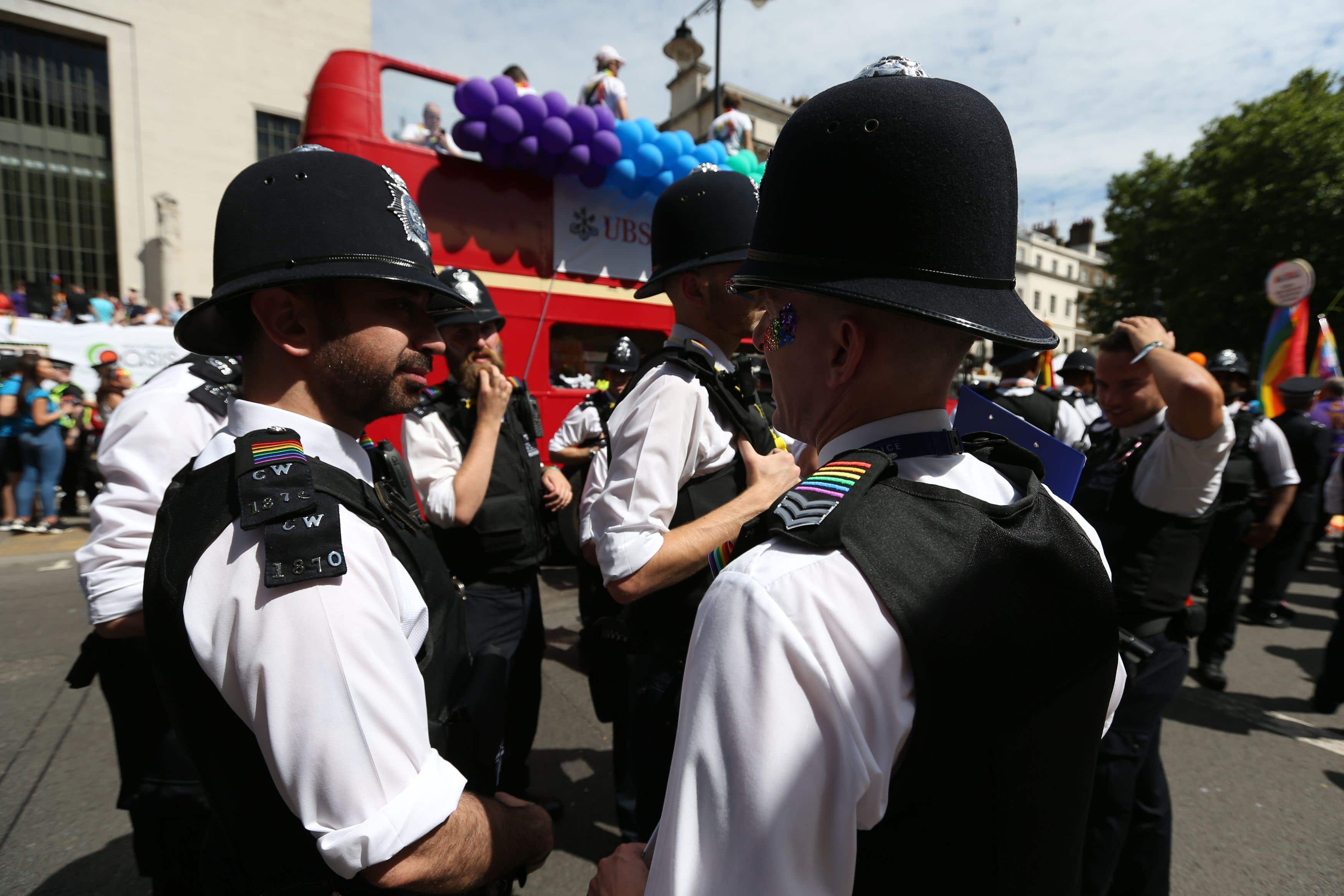Met Police ‘bans wearing of Thin Blue Line badge by officers at London Pride’
The symbol has become politically charged in the US, where it has been used by counterprotesters at Black Lives Matter marches.

Your support helps us to tell the story
From reproductive rights to climate change to Big Tech, The Independent is on the ground when the story is developing. Whether it's investigating the financials of Elon Musk's pro-Trump PAC or producing our latest documentary, 'The A Word', which shines a light on the American women fighting for reproductive rights, we know how important it is to parse out the facts from the messaging.
At such a critical moment in US history, we need reporters on the ground. Your donation allows us to keep sending journalists to speak to both sides of the story.
The Independent is trusted by Americans across the entire political spectrum. And unlike many other quality news outlets, we choose not to lock Americans out of our reporting and analysis with paywalls. We believe quality journalism should be available to everyone, paid for by those who can afford it.
Your support makes all the difference.Police officers at London Pride were reportedly told not to wear a badge commemorating officers killed in the line of duty because of concerns about its links to far-right groups in the US.
While the Thin Blue Line badge has traditionally been used to show support for law enforcement, it has become politically charged in the US, where it has been used by counter-protesters at Black Lives Matter marches.
The ban of the badge at London Pride, reported in the Mail on Sunday, was condemned by the mother of police constable Andrew Harper who was killed in the line of duty in Berkshire in 2019.
His mother, Debbie Adlam, told the newspaper that she considered the badge, which consists of a blue line stretched across a black background, to be a “universal memorial”.
“Since we lost Andrew, we have considered the Thin Blue Line image to be a universal memorial to the loss of these officers,” she said.
She added: “It concerns me that there are those who want to take (the badge) away.
“I hope that today is not the start of the end for the Thin Blue Line and all it means to us in the UK.”
The paper reported that a Met commander ahead of Saturday’s parade advised officers the symbol had been linked to anti-trans groups in the US.
“No ‘Thin Blue Line’ badges/patches are to be worn whilst policing this event,” the commander is reported to have said.
“These have been linked to far-right and anti-trans groups in the US and this year’s Pride is focusing very much on the trans community. This is non-negotiable and supervisors are expected to ensure this is adhered to please.”
Asked about the reported ban, a Metropolitan Police spokesman said officers can only wear insignia associated with the National Police Memorial Day Trust, Help for Heroes and the Royal British Legion charities.
“The Met’s Dress Code Policy sets out the official uniform police officers must adhere to whilst serving the public without fear or favour,” a spokesperson for the force said.
“The policy has not changed. The policy makes exception for the work of the National Police Memorial Day Trust, Help for Heroes and the Royal British Legion charities and permits officers to wear their insignia whilst on duty.”
Former home secretary Priti Patel condemned the reported ban, writing on Twitter that it was “nonsense” from “vested interest groups imposing their false narratives and ludicrous demands on our hard-working officers”.
In November 2022, the Mayor of London’s spokesperson said that the Metropolitan Police Service (MPS) Uniform & Appearance Board was reviewing the wearing of the badge “to ensure the MPS approach remains consistent with other forces nationally”.
The spokesperson said that the Thin Blue Line is “commonly accepted” as “demonstrating camaraderie” among the police.
The spokesperson added at the time: “Subtle wearing of this imagery, eg: a Velcro patch or pin badge is not prohibited by the current MPS dress code.”